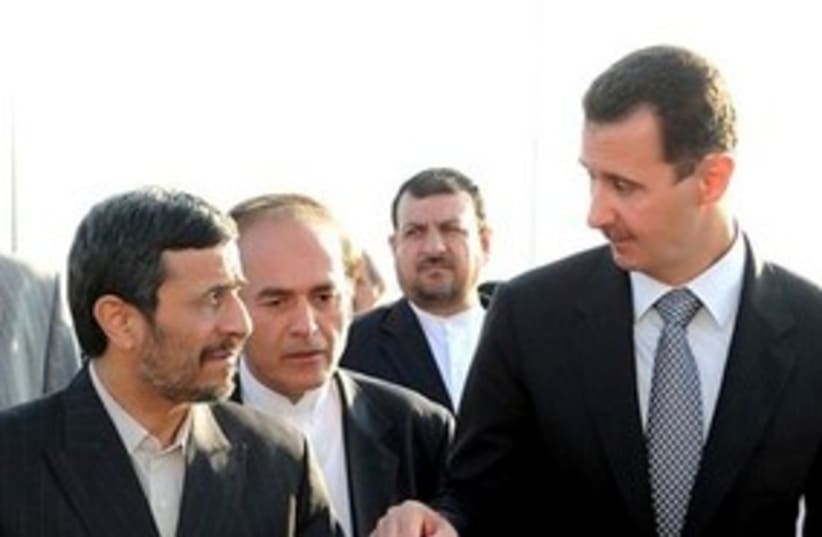AP contributed to this report.
WikiLeaks: 'Syria would drop Iran for peace with Israel'
IDF intelligence official Baidatz: Assad would be willing to pull away from Teheran’s orbit, according to State Dept. cable last year.

AP contributed to this report.